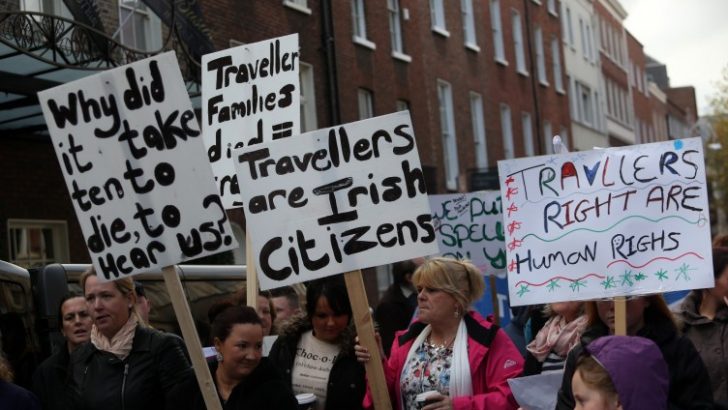Reports that more than one in five families referred to Gardaí when overnight accommodation is unavailable are Travellers are unsurprising, a priest who works as chaplain to the Traveller community has said.
“It does not surprise me,” Mallow’s Fr Tom Naughton told The Irish Catholic, continuing, “it has always been an outstanding issue in my experience”.
While stressing that his work with the Traveller community has been primarily religious and spiritual in nature, Fr Naughton said it has long been clear that Travellers have suffered from housing difficulties.
“I have been acutely aware over the years of the situation of housing, particularly with Travellers,” he said. “Now it’s a general problem but with Travellers in particular I suppose it’s true to say that a week hasn’t gone by where I haven’t become aware of at least one situation.”
The Cloyne priest’s comments come against the background of reports that in April Focus Ireland directed eight families to go to Garda stations for accommodation, with four families being similarly directed in May. Overall, 30 families were sent to Garda stations in April, and 29 in May.
Commenting on claims that the national housing crisis is having a disproportionate impact on the Travelling community owing to a failure of local authorities to provide Traveller-appropriate housing and discrimination against Travellers in the private rental market, Fr Naughton stressed the importance of appropriate housing.
“It’s one thing to give a person accommodation, but that may not necessarily be appropriate for various types of reasons,” he said, adding that he feels the main issue is a failure to integrate the Travelling community into broader society.
“There is a whole huge effort needing to be made with the integration of travellers into society in general, and society coming halfway with initiatives and endeavours and projects of working together so that misunderstanding and fear of the ‘other’ is broken down and taken away,” he said.
Describing this as “the very root cause of any discrimination that exists”, Fr Naughton said tackling this would require work on all sides.
“But that cuts both ways to be honest: both communities have to come halfway and be willing to work together constructively in order to break down discrimination,” he said.


 Greg Daly
Greg Daly
